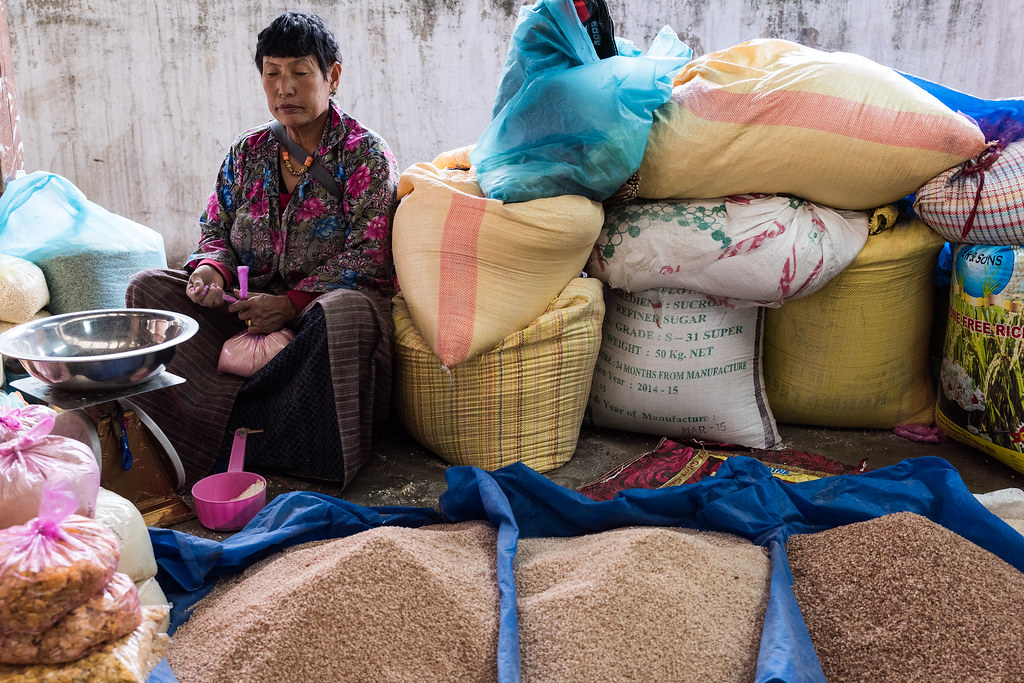FAO Investment Centre releases initial results of food system assessments in 50 countries

Country teams led by governments and supported by EU delegations, FAO representatives and other development partners are conducting the assessments, with results already compiled from Bhutan, Burkina-Faso, Madagascar and Nepal.
“We are partnering with the EU and CIRAD to undertake these assessments to support governments in member countries in their transformation towards more sustainable and inclusive food systems,” said Mohamed Manssouri, Director of FAO's Investment Centre. “This exercise is a stepping stone to shape new policies and make the quality private and public investments to provide healthy food and decent livelihoods, while preserving the environment.”
Sustainable food systems allow countries to ensure availability and affordability of safe, nutritious, and healthy food for all, alongside improved employment opportunities, and a more equitable distribution of wealth and resources.
Food system assessments play an important role in identifying challenges which hinder food system actors – including farmers, processors, wholesalers, distributors, retailers, and consumers – from contributing to sustainable food systems. They can highlight opportunities for enhancing livelihoods, increasing employment prospects, and improving environmental protection.
Combining quantitative evidence, qualitative appraisals and participatory analysis, the assessments will support countries to generate evidence and knowledge about sustainable food systems, with a focus on four core goals: food security, nutrition and health; inclusive economic growth; territorial development and equity; and the environment.
The results of the assessments will also inform the UN Food System Summit convened by Secretary-General Antonio Guterres in September 2021.
Bhutan: Feeding a growing population whilst retaining a pristine environment
Bhutan preserves 60 percent of its land under forest cover, as mandated in its constitution.The food system assessment highlights Bhutan's strong commitment to feed a growing population with affordable and healthy food without compromising its pristine environment. In a context of low agricultural productivity, high production costs, rising food imports and fast urbanization, Bhutan is determined to live up to its unique philosophy of securing the wealth and happiness of its people.
Burkina Faso: Fragile balance in the food system
Burkina Faso is grappling with rising insecurity in the northern region, particularly in the Sahel, which has prompted migration and internal displacement, and disrupted an already fragile balance in the food system. The country relies on small-scale family farming as the main source of agricultural production, with insufficient yields, depleted natural resources and often inadequate infrastructure and services. The lack of food diversity and a heavy reliance on a cereals-based diet is affecting the health and nutrition of the Burkinabé people, particularly children under the age of five. Yet the food system assessment highlights opportunities in the horticultural and livestock sectors to improve nutrition, job opportunities and livelihoods.
Madagascar: Immense potential, low productivity
The Indian Ocean island of Madagascar can produce an exceptional variety of food products, from horticulture, livestock and fisheries. Yet the country remains one of the poorest in the world, ranking 164th out of 189 countries in the Human Development Index. Once known as the rice granary of the region, Madagascar now imports almost a quarter of its cereal consumption. The food systems assessment reveals how improvements in infrastructure, as well as more effective decentralization and increased transfer of decision-making power to local levels, are needed to strengthen the agriculture and agri-food sectors. Also highlighted is the requirement to support small-scale family farms – the predominant method of production – to increase productivity without adverse impacts on already strained natural resources and ecosystems.
Nepal: Overcoming low productivity through socio-economic transitions
Nepal faces challenges in meeting the food demands of a growing and urbanizing population as it makes a transition to a federal system of governance. The country has recognized in its constitution the basic human right to food. The food system assessment highlights how meeting this obligation and transforming the food system will require new policies and measures to promote local production and productivity in the face of outward migration, urbanization, lack of infrastructure and climate change.
The results from the 50 food systems assessments are anticipated to be significant for policymakers and food system actors in the public and private sectors and civil society, to identify a range of policy, investment and capacity development options for the sustainable transformation of food systems.
